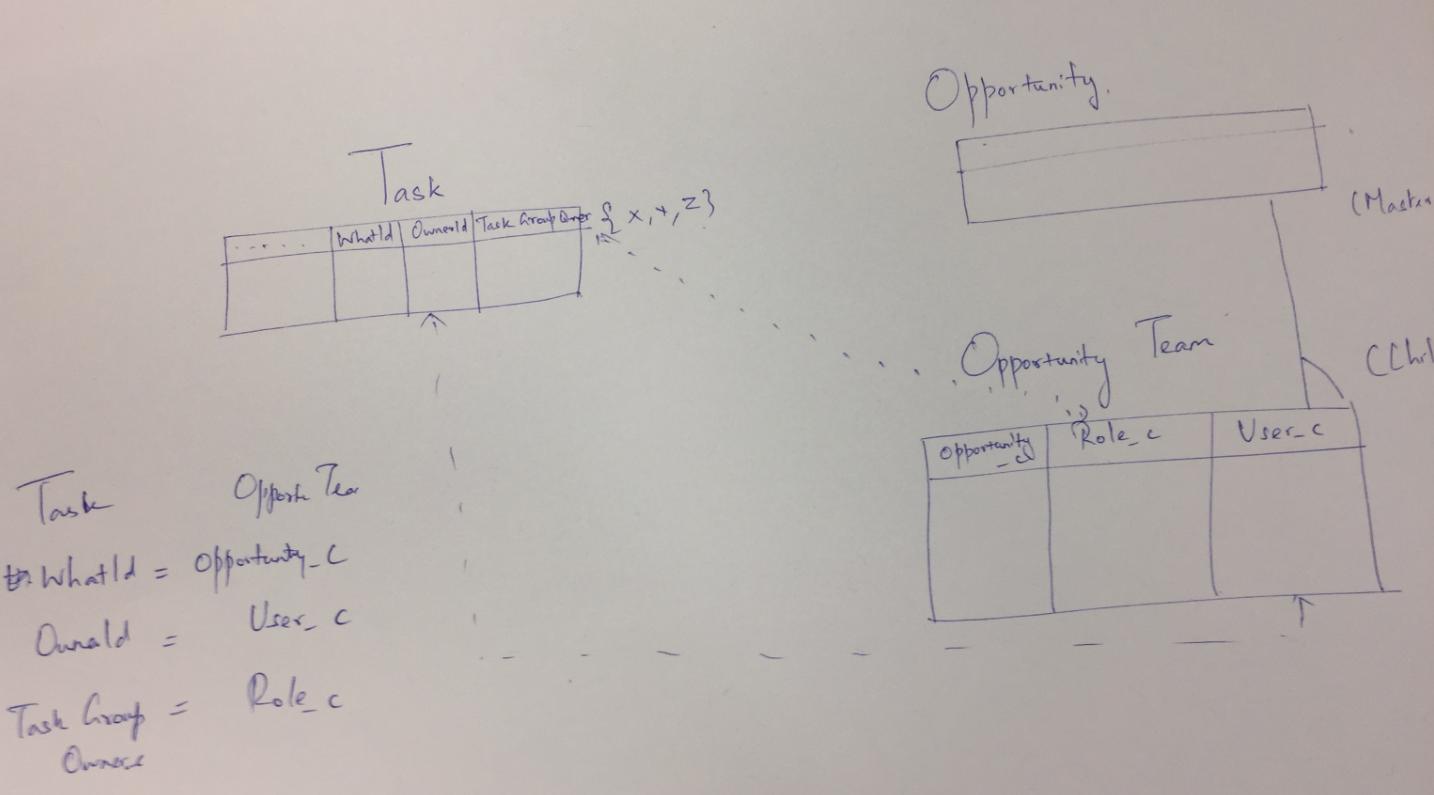I have a child object called "Opportunity_Team__c" whose parent is Opportunity.
This Opportunity_Team__c object has 3 fields
Opportunity__c (lookup to Opportunity)
Role__c (which is a picklist)
and
User__c(which is a lookup to User)
Also in Task object we have a custom field called "Task Group Owner" which is a picklist and has the same picklist entries as in Opportunity_Team__c.Role__c
This image can be helpful
Whenever there is an update happening in Opportunity_Team__c record I need to query all the records in Task object with the below join and update the ownerId of the task with the latest value in Opportunity_Team__c.User__c
Task.WhatId = Opportunity_Team__c.Opportunity__c
&&
Task.Task_Group_Owner__c = Opportunity_Team.Role__c
I have developed the following trigger to achieve this.
Is there any way to optimize or improve this code ?
trigger OppTeamReAssignTaskTrigger on Opportunity_Team__c (after update) {
List<Task> mastertasklist = new List<Task>();
Set<Id> oids = new Set<Id>();
for(Opportunity_Team__c ot : trigger.new)
{
oids.add(ot.Opportunity__c);
}
mastertasklist = [SELECT OwnerId, WhatId, Task_Group_Owner__c FROM Task WHERE WhatId IN :oids];
List<Task> reassignTaskList = new List<Task>();
for(Opportunity_Team__c ot : trigger.new)
{
for(Task t : mastertasklist)
{
if(ot.Opportunity__c == t.WhatId && ot.Role__c == t.task_group_owner__c)
{
t.OwnerId = ot.User__c;
}
}
}
update mastertasklist;
}
EDIT:
Is there any way to modify the code so that I do not have to use two for-loops ?

